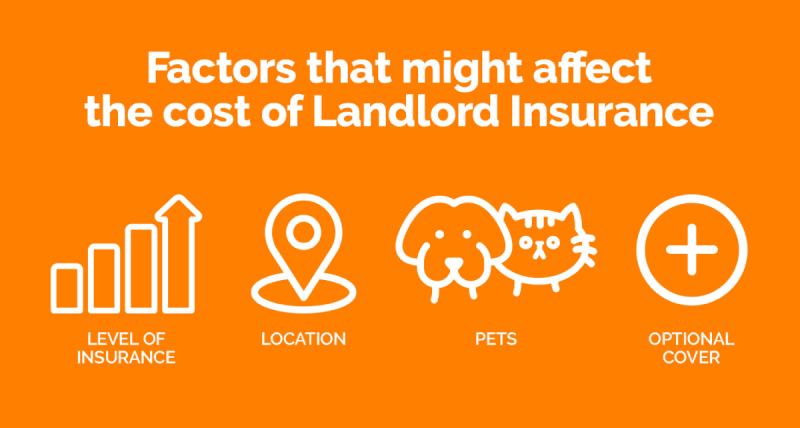*iSelect does not compare to all home and contents insurers in the market. The availability of policies may change from time to time. Not all policies made available from iSelect’s providers are compared by iSelect and due to commercial arrangements, area or availability, not all policies compared by iSelect will be available to all customers. See below for our range of home and contents insurers. Some policies are only available from iSelect’s call centre or online. Our advice on this website is of general nature and does not consider your situation or needs. Consider if any advice is appropriate for you before acting on it. Learn more.
Our range of Home and Contents partners
What is Landlord Insurance?
Landlord Insurance is a type of Home and Contents Insurance designed specifically for people renting out their property. As well as covering you for damage to the property, it might include tenant defaults, their visitors damaging the property or the related legal expenses that might arise.
Should I get Landlord Insurance?
While not compulsory in Australia, Landlord Insurance is designed to protect you financially from some of the risks that come along with being a landlord. Have a think about how it would impact you financially if a tenant defaulted on rent, or if they had to move out for repairs to be conducted. Bit stressful? Landlord Insurance can help with that.
Landlord Insurance
explained
explained
Learn more about how Landlord Insurance works in this short video.
Which factors can affect the cost of my Landlord Insurance?
Level of insurance
Landlord Insurance can help cover physical damage to your property, and sometimes to its contents, too. If you’re furnishing the property, it’s worth choosing a policy that includes Contents Insurance. Keep in mind that items like carpets, curtains, and appliances can be considered furnishings.
Location
If your property is located in an area with a lot of crime, or one that’s prone to natural disasters, it could impact the cost of your policy. You can call your local council to find out if your property is located in a fire or cyclone zone.
Pets
You could have the most responsible tenants in the world, but their pets might be a whole other story! Some insurers will require you to take out optional cover – at an extra cost – to protect against the damage they could cause.
Optional cover
There are usually a whole lot of extras you can add to get your Landlord Insurance just how you want it. These could include getting the locks changed and getting cover for flooding, which often isn’t included in standard Home Insurance Policies.

Frequently Asked Questions
My tenants already pay a bond – how is this different?
Requiring tenants to pay a bond is standard practice in Australia. In most cases, a bond is often equal to four weeks of rent – though this can differ in some states depending on the weekly rent.
Generally, when it’s time for tenants to leave the rental property, they’ll do so without significant damage, or with minor damage that can be covered by the cost of the bond. But in the case of major damage, that bond money could be eaten up very quickly. Plus, if repairs take more than a few weeks, you could miss out on incoming rent. Landlord Insurance could help with repairs that exceed bond payments. It could also help compensate you for missed rental income.
What does Landlord Insurance typically cover?
While Landlord Insurance is typically included under the umbrella of Home and Contents Insurance, there are lots of inclusions as well as optional extras.
You might also come across the terms Landlord Contents Insurance, Landlord Building Insurance, and Landlord Combined Insurance. As always, the Product Disclosure Statement (PDS) will clarify what is actually included in your policy.
Here are some of the usual inclusions:
- storm damage
- fire damage
- earthquakes
- tenant default
- theft or vandalism
- legal liability cover (protection in the event of a claim someone makes after an injury or damage on the property)
- impact damage (if an aircraft, aerial device, vehicle or animal collides with and damages the property)
- escape of liquid (the sudden leakage from pipes or household appliances which cause damage to the property).
Keep in mind that some of these items could be included as optional extras, so check your PDS for further details.
What isn’t typically covered by Landlord Insurance?
Your policy will likely come with exclusions, which are outlined in the Product Disclosure Statement. These depend on your policy and the level of cover you choose. Typical exclusions on a Landlord Insurance Policy can include:
- normal wear and tear
- movements of the sea
- vermin
- war
Can I get Landlord Insurance for short-term rentals?
If there’s risk associated with renting out your property for long-term leases, you can only imagine the potential risk of renting out to dozens (or even hundreds) of people every year. Many providers don’t offer Landlord Insurance for homeowners who rent out their property for short periods through sites like Airbnb and Stayz. Luckily, Short-Term Rental Insurance should do the trick here, as should the insurance that comes included under your Airbnb fees.
Does Landlord Insurance differ by state?
A lot of contingencies that affect your Landlord Insurance choices and costs, like weather and building construction, vary from state to state. Before you start comparing policies, get to know how Landlord Insurance works in your state:
Helpful tip
Every good landlord knows the importance of regular property inspections – and this becomes doubly true when you take out Landlord Insurance.
Now, it won’t be news to anyone that these inspections can help you identify minor issues before they turn into major problems. But this doesn’t just help you keep your property in tip-top shape, it can also help you avoid costly repairs that you’d need to claim on your insurance.
Remember, claiming on your Landlord Insurance might also increase your premium. This is because it’s a sign that you might claim again in the future. Essentially, it makes your property more of a risk. But prevention is better than cure, so be on the lookout for those water leaks and cracks in the wall before they turn into a real headache!
How can I compare Landlord Insurance Policies?
If you’ve read this far, you probably understand that not all Landlord Insurance Policies are created equal. So before you commit, it’s a good idea to compare policies. At iSelect we’re here to help! Through our comparison service, you can compare Landlord Insurance and other kinds of Home Insurance Policies, and even switch policies, all at no added cost to you.

.svg)






